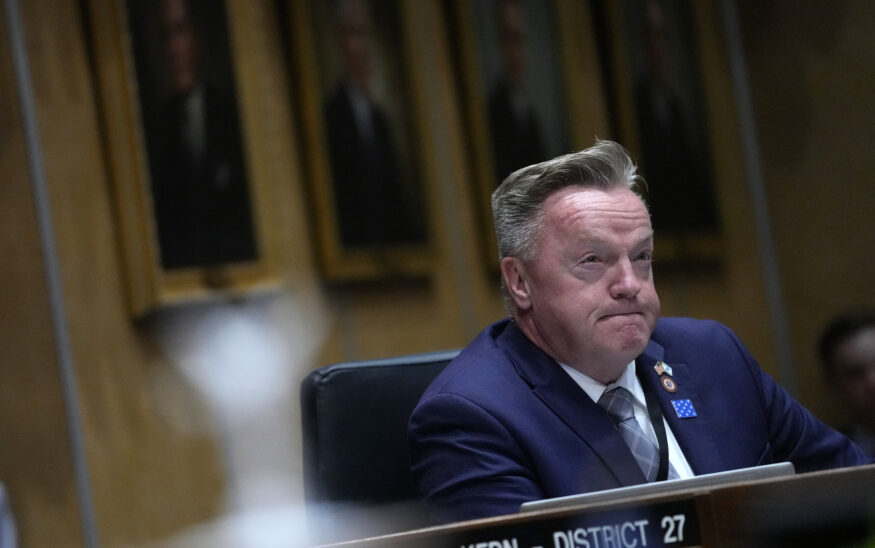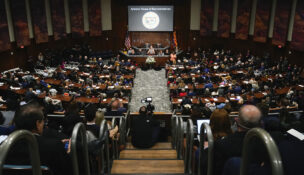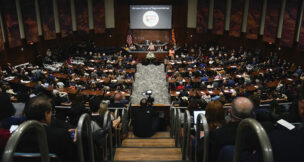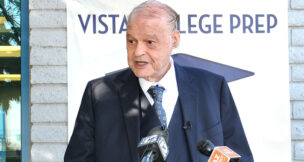Prop 315 supporters argue it will save money; opponents say it will cost lives
Reagan Priest Arizona Capitol Times//October 12, 2024//
Prop 315 supporters argue it will save money; opponents say it will cost lives
Reagan Priest Arizona Capitol Times//October 12, 2024//
Among the laundry list of propositions on Arizona’s ballot this year is a measure that would require legislative approval for state agency rules that increase regulatory costs.
Supporters say the measure will save taxpayers money and return power to the people, but opponents say it will slow agency rulemaking to a pace harmful to Arizonans.
Proposition 315, a legislative referral sponsored by Republican Sen. Anthony Kern, would require state agencies to submit proposed rules that could increase regulatory costs by more than $100,000 to the Arizona Office of Economic Opportunity. If the OEO, an office overseen by the governor, finds that the proposed rules would increase regulatory costs by more than $500,000 over a five-year period, the rules must be submitted to the Legislature for approval.
Many backers of Prop. 315 are Republican lawmakers and Republican-aligned organizations, like Americans for Prosperity, which supported the measure as it moved through the Legislature. Steven Shadegg, the Arizona director for AFP, said the measure will give power back to the people by creating a check on state agencies that are run by appointees, not elected officials.
“When [voters] look at this proposition, they should look at this as a way of getting a check on any additional taxes that may have to be put on the citizens of Arizona as a result of new regulations that were implemented through agencies but not approved by the state Legislature,” Shadegg said.
By letting elected officials weigh in on agency rulemaking, Prop. 315 would give power back to the people, Shadegg said.
“Our main goal is just to make sure that we have representative democracy and that the people are able to have a say in the money that is being spent,” Shadegg said.
However, some former agency heads are vehemently opposed to Prop. 315 and say it will add another hurdle in an already bureaucratic agency rulemaking process.
Agencies make rules to support a variety of state programs and statutes. For example, the Arizona Department of Health Services recently began its rulemaking process for the implementation of the “tamale bill,” a piece of legislation approved by lawmakers that expands the types of foods vendors can sell from their home kitchens.
Any rule change by a state agency must go through a lengthy process that involves economic impact statements, public comment periods, oral proceedings and approval from the Governor’s Regulatory Review Council.
Will Humble, the former director of the ADHS, submitted an argument against Prop. 315 to the Secretary of State’s publicity pamphlet. He said delays in rulemaking could be deadly for agencies like ADHS, which oversees many of the state’s health care and public safety sectors.
Humble said an average agency rulemaking process takes at least 18 months to complete, but with new hurdles added, the process could drag on even longer or not be completed at all. That could put Arizonans at risk if important rules related to issues like nursing homes or clean water are sidelined.
“[If] there’s a stakeholder that’s pissed off and doesn’t like the rule, then they can go to … the president of the Senate, who could then make sure that the request to approve the rule never makes it to the floor, so a single legislator could kill an entire rule package,” Humble said.
He said he’s concerned that lawmakers could weaponize Prop. 315 in times of divided government, similar to the way Republican lawmakers threatened state agencies run by Democratic appointees when they came before the Legislature for sunset reviews earlier this year.
“When they want a governor to look bad, and their agencies to look bad for political reasons, even though it’s hurting the public, then they do all this monkey business,” Humble said.
He acknowledged that agency rulemaking often comes with regulatory costs, but said those costs are often necessary to protect Arizonans. Humble said many rules targeting health care providers and nursing homes increase regulatory costs but ultimately make those facilities safer.
“So the people that are making this argument that, [Prop.] 315 is gonna save regulatory costs, that might very well be true, but it also is gonna cost human lives,” Humble said.
Shadegg said Prop. 315 is not meant to remove agencies’ authority or jeopardize their ability to keep Arizonans safe. He pointed out that eight other states have passed measures similar to the proposition in Arizona with AFP’s help.
“I think that it’s important for agency heads to understand that while public safety is a top priority, the money that is being spent is the people of Arizona’s money, and therefore the people of Arizona should have some review and regulatory process for the money,” Shadegg said.
Both Shadegg and Humble agree that Prop. 315 is an important measure that voters should pay attention to, along with the 12 other statewide propositions on the ballot. Shadegg said voters should consider the impact the proposition will have on their wallets, while Humble wants voters to remember that it is nearly impossible for propositions to be reversed once they are approved.













































